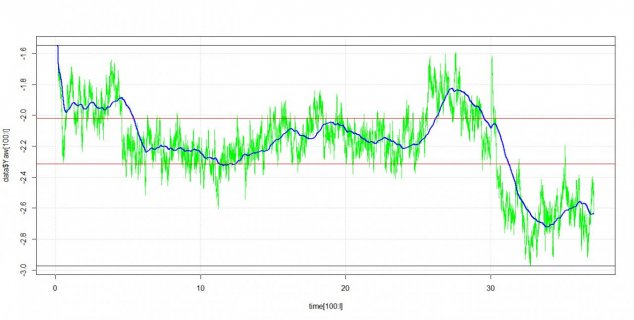mjs513
Senior Member+
Don. Thanks for the update. Looking forward to see what you come up with. Been busy last night and today. I went back and try to do my own port from the original miconav_ahrs.c to Eigen like Brian did. Took take approach, figured it would force me to go line by line, couldn't get it working so I went back to Brian's port and did a couple tweaks for experimenting with since I got a better understanding (a little bit at a time). Got it working so yaw would vary +/- 0.5 degrees from where I put - very noisy but by controlling the quat variance in aQ got better.
Anyway one of the things I noticed when I started was that it would start drifting on me when I swiveled in my desk chair so that the back was about a foot away, when I rotated the back away it would stabilize back to where it started. Yes in all drift testing the back of my chair was a bit towards the 9250. I ran a couple of tests and I am posting the recent one just to give you an idea. At about the 28 minute mark I came back in the room and brought the chair closer. It started drifting upwards and after that it decreased further, probably because of I was oriented in the chair.
I will leave the conclusion to you all. I am going to move on to next version that Brian created where he rederived the equations. Going to see if I can put in a different IMU as well.
Cheers
Mike
Anyway one of the things I noticed when I started was that it would start drifting on me when I swiveled in my desk chair so that the back was about a foot away, when I rotated the back away it would stabilize back to where it started. Yes in all drift testing the back of my chair was a bit towards the 9250. I ran a couple of tests and I am posting the recent one just to give you an idea. At about the 28 minute mark I came back in the room and brought the chair closer. It started drifting upwards and after that it decreased further, probably because of I was oriented in the chair.

I will leave the conclusion to you all. I am going to move on to next version that Brian created where he rederived the equations. Going to see if I can put in a different IMU as well.
Cheers
Mike

